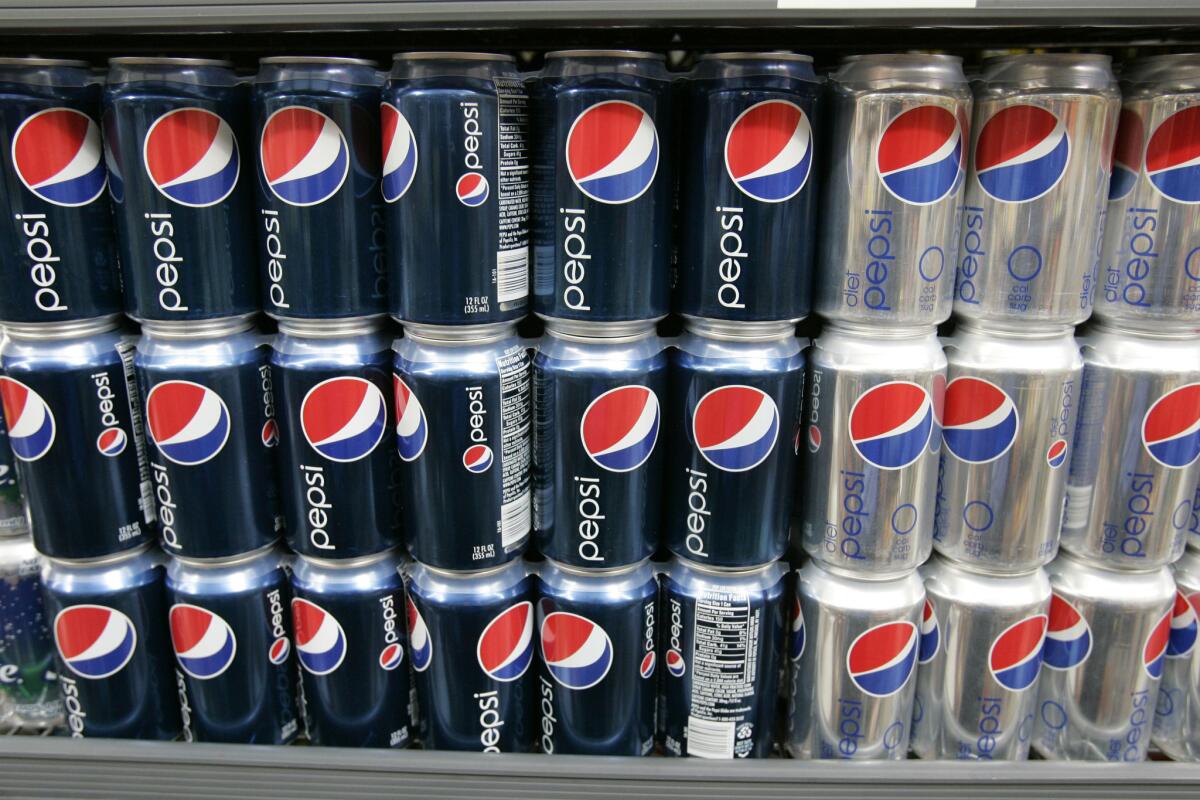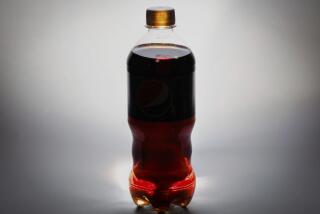Junk food and junk science: the case of aspartame and Pepsi

PepsiCo, evidently testing the notion that junk science can be good marketing, announced last week that it was removing the artificial sweetener aspartame from most of its diet sodas in the United States.
To its credit, the company didn’t claim it was doing so because of any indication that aspartame is unsafe. It’s doing so because its customers think it’s unsafe. Never mind that there’s no scientific evidence that it is unsafe.
In marketing, consumer impressions are everything, so Pepsi will take this opportunity to feed public misperceptions and score points off its archrival Coca-Cola by emblazoning its Diet Pepsi cans and bottles “aspartame-free,” starting in a few months. The goal is to distinguish its product from Diet Coke, which, like Diet Pepsi, has faced plummeting sales, but isn’t, as yet, on the no-aspartame bandwagon. Pepsi candidly admits that consumer surveys indicated that one reason for the fall-off is public concern about aspartame.
“We’re listening to consumers,” Seth Kaufman, a senior vice president of Pepsi, told numerous news agencies after the announcement. “It’s what they want.” The punchline is that Pepsi is merely changing its formulation to sucralose, commonly sold as Splenda, another artificial sweetener. Splenda hasn’t been on the market as long as aspartame, so it hasn’t had as much time to accumulate public suspicion.
Consumers with a historical memory will recognize the demonization of aspartame as part of a continuum. Decades ago, when saccharine was the noncaloric sweetener of choice, that compound attracted public concerns about its safety. The world moved on to sodium cyclamate, until studies hinted it might contribute to bladder cancer. Several countries, including the United States, banned it in 1969, but although the ban has been lifted in Europe, it’s still banned in the United States.
So what is the state of sweetener science?
Aspartame came on the market in 1981, but public concerns about its safety really only surfaced in 1996, with a paper purporting to link it to a rise in brain tumors. The increase in tumors was soon shown to have begun in 1973, eight years before the introduction of aspartame, and mostly to affect people 70 and older -- not a major market for diet drinks. A team from the National Cancer Institute in 2006 found “no support” for the hypothesis that the chemical posed a risk to humans.
Reports that aspartame causes psychological effects, blood ailments and brain cancers, have been tested and found to be unsupported. The European Food Safety Authority completed “one of the most comprehensive risk assessments of aspartame ever undertaken,” and deemed it safe. (Julia Belluz of Vox has a good roundup of the evidence on aspartame here.)
Aspartame does remain, however, a popular target for food faddists whose credibility is open to question.
Among them is Joseph Mercola, a hawker of “organic” nostrums who calls the compound “by far the most dangerous substance added to most foods today.” Mercola also dispenses anti-vaccine propaganda on his website and not only promotes sun exposure as a health benefit but also conveniently sells tanning beds and booths for as much as $3,999 a unit. You follow his advice at your own risk.
Mercola’s claims about aspartame are parroted by the egregious “Food Babe” Vani Hari, who has said it’s “considered one the most dangerous substances allowed in our food supply.” (Yes -- by her partner-in-misinformation Joe Mercola.)
Their drumbeat, abetted by the occasional, oft-misinterpreted, scientific study, has kept up the heat on aspartame. The Wall Street Journal last week ascribed a surge in public anti-aspartame public sentiment to a study published last fall in the journal Nature.
If that’s so, it’s hard to see why. The study assessed the possibility that diabetes might be promoted by three artificial sweeteners, saccharine, aspartame and sucralose, and concluded that there might be some effect in lab rats, but that if so, the biggest culprit by far was saccharine. The Israeli researchers who conducted the study also tested humans -- five men and two women who were supplied with artificially sweetened foods for a week. That’s not enough to come to any conclusion. In any case, the study implies that Pepsi isn’t doing its consumers any favor by substituting one problematic sweetener (sucralose) for another (aspartame).
The most perplexing effect of artificially-sweetened foods is that they don’t seem to contribute consistently to weight loss; for some people they seem to be associated with weight gain. It’s unclear why this is so, if it is so -- among the conjectures are that the sweeteners somehow signal the body to crave more sweets or calories, or that those who base their weight-loss strategies on drinking diet colas may feel free to overindulge with high-caloric foods in compensation.
Nutritional experts do tend to agree on one point: a big problem with the American diet is sugar. To many of them, anything that reduces sugar intake is a plus, whether it’s will power or a reasoned consumption of artificially sweetened food and drink. As pediatrician Aaron Carroll put it in one of his indispensable Healthcare Triage videos: “There’s an abundance of evidence that overconsumption of sugar is contributing to health problems; there’s a lack of evidence that artificial sweeteners are doing the same.”
Keep up to date with the Economy Hub. Follow @hiltzikm on Twitter, see our Facebook page, or email [email protected].
More to Read
Inside the business of entertainment
The Wide Shot brings you news, analysis and insights on everything from streaming wars to production — and what it all means for the future.
You may occasionally receive promotional content from the Los Angeles Times.









